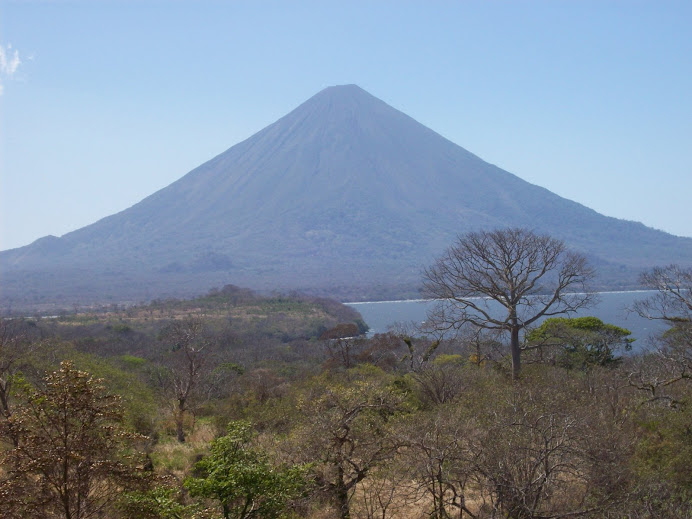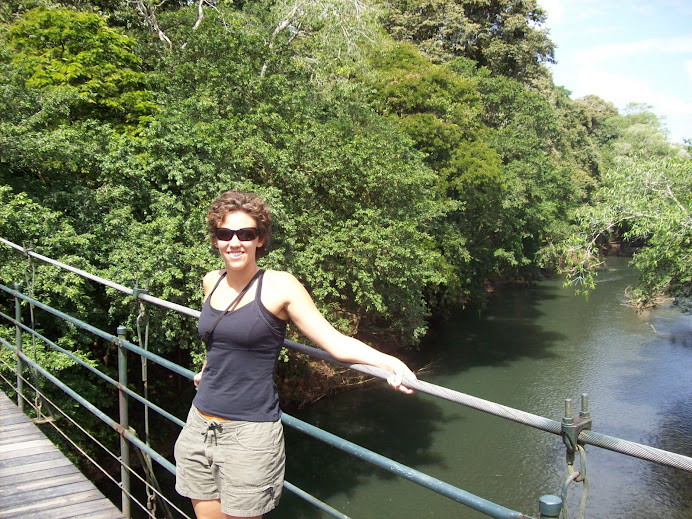Up until this trip I had not realized just how much the sugarcane industry and other forms of large-scale agriculture throughout the Midwest, South, and Southeast (Brazil's more prosperous regions) depend on migrant labor from the Northeast. Apparently the majority of the unskilled labor on the monoculture plantations in fact comes from the Northeast. This would include laborers working as registered workers as well as clandestine and even slave labor, which is in fact increasing in southern Brazil. People migrate from the Northeast because in that region there is simply little work, and laborers tend to be paid less and have fewer rights. In fact, on several occasions in Pernambuco I have heard sugarcane cutters talking about wanting to head to other states where they can make more money, be treated better by employers, and in general have greater security. That is, of course, as long as they are not duped into slave-like or clandestine working conditions.
While in Goiâs I visited neighborhoods which are almost entirely occupied by people from the Northeast who have come to search for work. It was an excellent opportunity to see the impacts of Brazil's expanding ethanol industry on livelihoods in the Northeast from this perspective- migration in search of a better life. They are still cutting cane, as their parents, grandparents, and great-grandparents probably did, but in a different part of the country where they feel there is more potential for a future. While doing my research in the Northeast I have met countless people who have tried living in other states, or whose family members have migrated to other states to try to find a better and easier life. On this trip I got to see how those people actually live once they make it down here. The people that I talked with all work long hours in hard labor, but expressed that they are happy to have made the move to Goiâs. This is because cutting cane pays better here, and workers receive far more benefits. In addition, there are other types of agriculture which employ the migrant laborers once the sugarcane harvest ends. This means that here in Goiâs there is no hungry season such as that experienced by sugarcane-dependent communities in the Northeast. All of the people I spoke with said that they feel they have a better chance at a future in Goiâs than in the Northeast, even if they continue only to work in agriculture there.
Here are some pictures of the communities of migrant laborers and the great people I met there:
After leaving Goiâs I hopped on a bus to nearby Brasilia, Brazil's capital since 1960. It is quite unfortunate that this entirely planned city was planned during an era when suburbia-style car dependence was all the rage. Trying to walk around this city is hell. I managed to do a bit of walking though, in addition to taking crowded buses and expensive cabs. I didn't get to see too much of the city while I was there. I had a good time, but have no huge desire to go back. The purpose of this trip was to interview the Ministries of Mines and Energy and Agriculture on Brazil's ethanol program. The interviews went fairly smoothly, and they while they did their best to blow me away with the success of Brazil's "green" ethanol industry, I did my best to get them to talk about things like the impact of the expanding ethanol industry on food security and agrarian reform, so desperately needed by millions of landless people in Brazil. They didn't blow me away, but merely told me what I expected to hear. They didn't do much as far as answering my questions either. The meetings were still worthwhile though. Brasilia was an interesting experience.
In addition to my experience with the Ministries, I met some great folks working in agrarian reform and the landless movement while in Brasilia. These folks are always great to spend time with and learn from. They are passionate and driven, fighting relentlessly for social justice. Even if it is just from an office in Brasilia. Someone's gotta do it. They made for wonderful hosts during my time in the capital.
In addition to my experience with the Ministries, I met some great folks working in agrarian reform and the landless movement while in Brasilia. These folks are always great to spend time with and learn from. They are passionate and driven, fighting relentlessly for social justice. Even if it is just from an office in Brasilia. Someone's gotta do it. They made for wonderful hosts during my time in the capital.






























